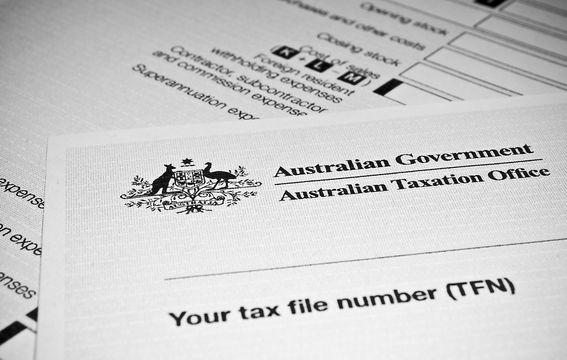Repatriation to Australia: A Guide
Nothing written here is formal legal or financial advice, and the facts might have changed since we penned this article.
If you are looking to invest as an expat or high-net-worth individual, which is what I specialize in, you can email me (advice@adamfayed.com) or WhatsApp (+44-7393-450-837).
Introduction
In this article, we will discuss certain items to take note of for your repatriation to Australia.
There are a number of financial matters that need to be taken cared of well in advance of packing your bags as the time of your life as an Australian expat abroad comes to an end and as you prepare to travel back to the land Down Under (as it is called).
Repatriation to Australia: Taxation Changes Applied to Australian Tax Residents
You are subject to income tax worth up to 45% plus 2% for Medicare as well as capital gains tax on your worldwide income and assets after you become an Australian tax resident. You must determine the value of each asset you own as of your return date, including any foreign currency holdings, as this value will serve as your cost basis for determining any capital gains when you eventually sell the asset.
Taxable Australian assets, such as shares that you had at the time and on which you chose not to pay capital gains tax when you left Australia do not need to be revalued. The same goes for taxable Australian properties such as residential and commercial property as well as some business interests that you owned since then.
The capital gains tax discount on assets kept for longer than a year becomes available to you once again when you resume Australian tax residency.
One advantage of resuming Australian tax residency is that income up to $18,200 is tax-free, followed by income up to $37,000 at 19%, and income up to $90,000 at 32.5%. Taxes on received investment income and capital gains can be as low as possible thanks to the lower rates and tax-free level.
For comparison, non-residents are levied a flat rate of 32.5% on income.
Meanwhile, there may be additional tax savings available on assets held in different entities, such as family trusts, corporations, or insurance bonds.

Repatriation to Australia: On Buying a House
Should you acquire a residence before or after you return to Australia?
In recent years, the rules governing home purchases in Australia have evolved. Currently, as a non-resident, there are:
- In most states, additional stamp duty is charged on purchases
- There’s also an additional land tax in majority of states
- If your property is empty for longer than six months each year, there will be an annual vacancy fee
- More stringent regulations governing bank lending
- There is no proportional capital gains tax break for non-residents when selling their property
If everything else remained the same, you might avoid the aforementioned issues by delaying the purchase of your home until you return to Australia. However, if you do locate your ideal house or property in a desirable area for a reasonable price, at the very least be aware of the aforementioned and seek expert advice to prepare in advance and save taxes. The management of the taxation and debt structure for investment property also calls for careful planning.
Repatriation to Australia: On Insurances and Estate Plans
You can have too little or too much life insurance now that you’ve spent several years living outside of Australia, and you might also be paying extra premiums on outdated superannuation accounts. You should examine your insurance coverage periodically and take into account both your current insurance alternatives and any new insurance offerings in Australia.
Insurance payouts and retirement benefits, which are not always assets covered by your Will, must be included in your estate plan. A thorough financial plan that addresses asset management, insurance, and estate planning as well as residency tax preparation will be beneficial to the majority of expats.
Repatriation to Australia: Managing Currency Fluctuations
Given that Australians are immediately plunged into a world with many currencies once they leave the country, it’s quite shocking to know that comprehension of currency strategy is frequently lacking. As expats, you often prefer the Australian dollars (AUD) to weaken before your return to Australia and then strengthen again the day after you have exchanged your money into AUD.
Sadly, it is almost impossible to plan for such a result, and behavioral confidence that the currency will move in the desired direction frequently interferes with logical strategy.
In general, the two most crucial currency factors for an Australian wishing to return to the country are:
- Avoid buying AUD high and selling foreign currency low
- Recognize and control Australian taxation on earnings from foreign money
Foreign currency has a value much like any other asset, and as with any decision to buy or sell an asset, we would prefer to do so at what we consider to be a fair price. The issue may be that while the decision to go back to Australia may have been made in the past, the currency plan was likely only considered at the last minute. This may result in the acceptance of a lot of good fortune in exchange for the years of arduous work and offshore cash buildup.
Longer-term currency fluctuations can have a significant impact on an expat’s profitability. The other important aspect is that an Australian tax resident must pay taxes on increases in the value of foreign money. For the purpose of Australian taxation, currency holdings must be valued at the time that Australian tax residency is resumed, and any gains that are subsequently realized are categorized as capital gains.

What can you do to lessen the chance that unfavorable currency fluctuations and tax on favorable currency fluctuations may cause your wealth to diminish?
Consider beginning to accumulate a portfolio of AUD assets way ahead of your anticipated date of return to Australia. These assets could include cash, real estate, stocks, and superannuation. A lot of us are clever enough to be aware of what the AUD is most likely to do, but none is certain. What we do know is that our foreign currency holdings will lose value in AUD terms if the AUD strengthens.
As a result, the concept of averaging can be used to lessen the risk associated with a certain currency by gradually creating an AUD portfolio. Depending on the country you live in and the tax laws there, the portfolio may be held overseas or in Australia. It could be as easy as putting money into an AUD bank account, or it could include a more complex or diverse strategy like holding currency exchange-traded funds (ETFs), investing in Australian stocks or real estate, or creating an Australian superannuation.
If you anticipate receiving sizable lump amounts in the months before your return to Australia, such as from the sale of real estate, you can think about locking in some or all of the money in forward currency contracts with a bank or currency broker. The danger that a short-term bad occurrence can have on your repatriation strategy can be reduced by hedging substantial quantities in this way in the short term for a reasonably low cost.
Unexpected, unfavorable moves of between 5% and 10% or more are not acceptable. Even worse, if you delay currency exchange due to such a negative move and the currency later rebounds, you will be responsible for paying tax on that recovery if you have now become an Australian tax resident.
If you are an Australian tax resident and are aware of the potential tax ramifications of holding foreign currency that is appreciating, you may want to think about purchasing AUD before you are tax resident and then establishing hedging positions through ETFs held in structures with favorable tax outcomes, such as the account of a low-income spouse, superannuation accumulation or pension funds, family trusts, or corporations.
The answer will vary greatly depending on your unique financial situation and goals, as well as how much you want to keep your exposure to exclusively foreign currencies.
Once you’re done checking the things you need for your repatriation to Australia, you can also read our article about the best investment options for Australian expats in 2021.
In addition, we have a review of HSBC Expat for international banking.
Pained by financial indecision? Want to invest with Adam?

Adam is an internationally recognised author on financial matters, with over 760.2 million answer views on Quora.com, a widely sold book on Amazon, and a contributor on Forbes.



